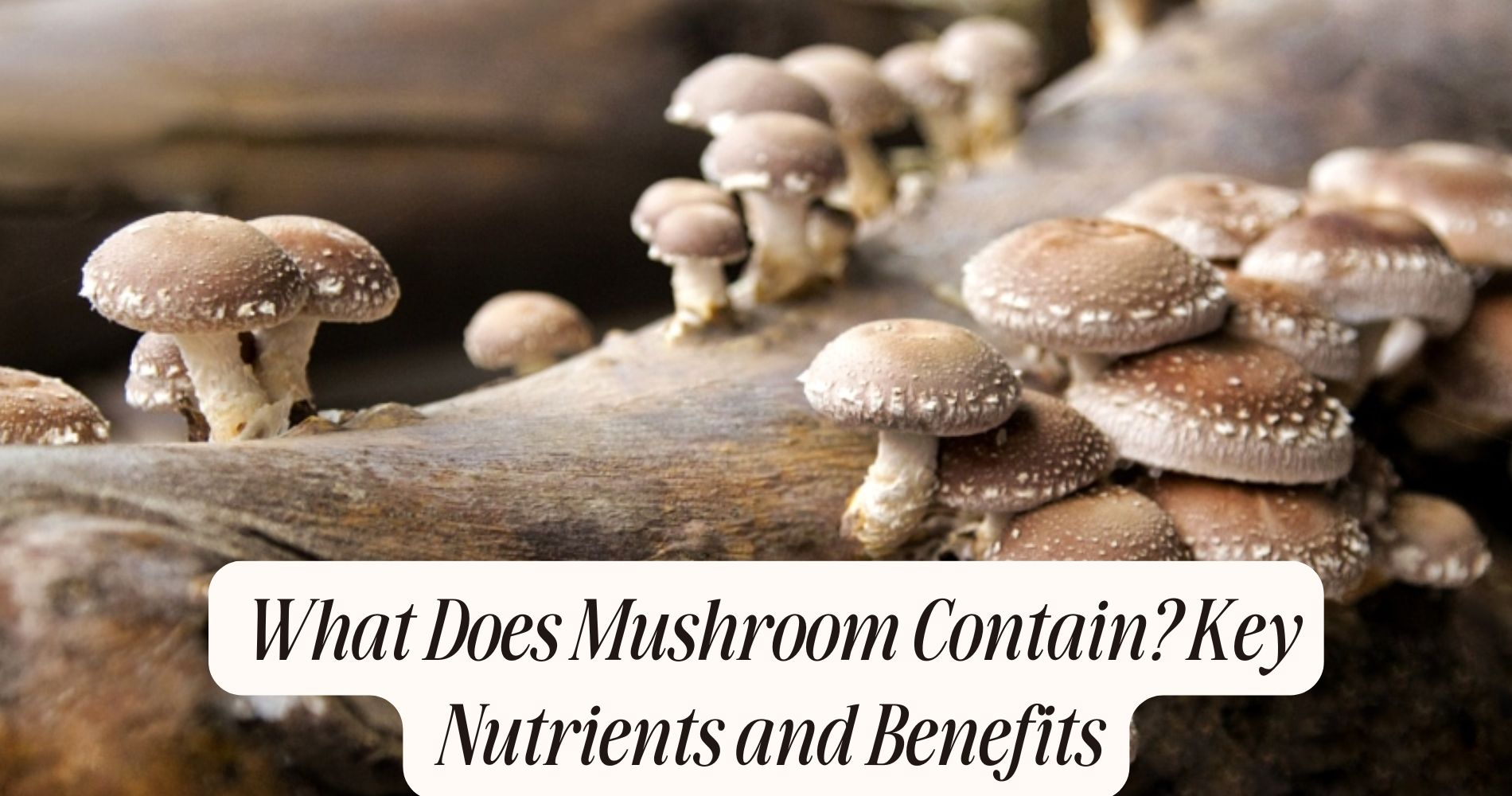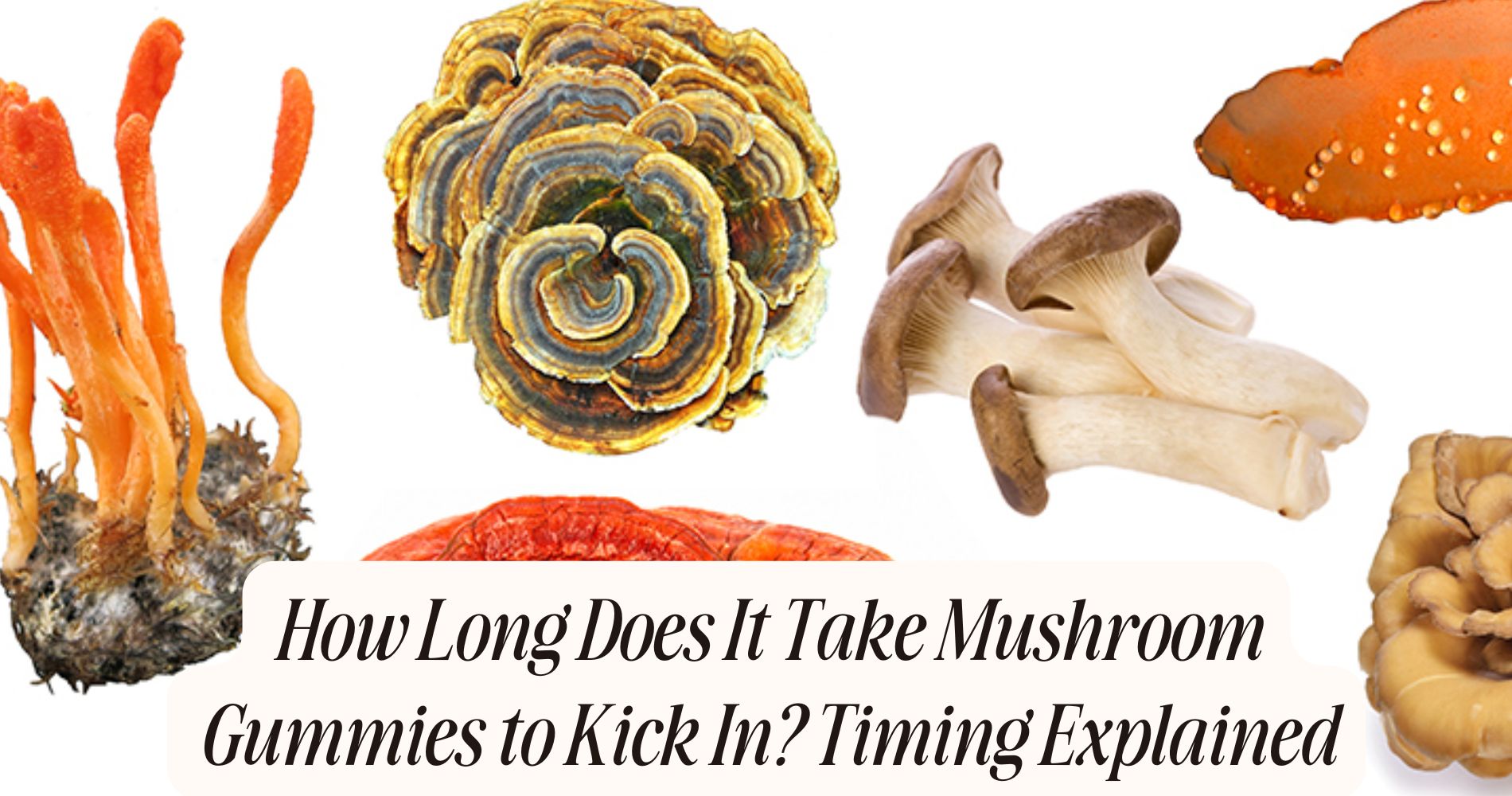
What Does Mushroom Contain? Key Nutrients and Benefits
What does mushroom contain? Mushrooms are often overlooked in discussions about nutrition, yet they hold a wealth of essential nutrients. They’re rich in B vitamins, minerals like selenium and potassium, and powerful antioxidants. These components not only support your metabolism and immune system but also contribute to overall health. Understanding the specific nutrients in mushrooms can help you appreciate their benefits even more. So, what exactly makes these fungi a valuable addition to your diet?
Nutritional Profile of Mushrooms
Mushrooms are a powerhouse of nutrition, offering a unique blend of vitamins, minerals, and antioxidants. When you explore different mushroom varieties, you'll find a remarkable range of nutrient density.
For instance, shiitake mushrooms are known for their high levels of B vitamins, while portobello varieties provide significant amounts of potassium and selenium. The low-calorie content combined with a rich supply of fiber makes mushrooms an excellent choice for healthy eating.

Additionally, they contain essential amino acids that contribute to overall wellness. Research shows that incorporating various mushroom types into your diet can enhance your nutrient intake and support immune function.
Vitamins Found in Mushrooms
While many people may overlook mushrooms as a source of essential nutrients, they actually pack a significant vitamin punch. One of the standout vitamins in mushrooms is Vitamin D, particularly when exposed to sunlight or ultraviolet light. This vitamin is essential for bone health and immune function.
Additionally, mushrooms are rich in B vitamins, including riboflavin, niacin, and pantothenic acid. These vitamins play important roles in energy metabolism, helping your body convert food into usable energy. They also support nervous system health and red blood cell production.
Incorporating mushrooms into your diet can enhance your vitamin intake, providing you with a natural and delicious way to boost your overall health.
Minerals Present in Mushrooms
Rich in essential minerals, mushrooms offer a unique nutritional profile that can greatly contribute to your overall health.
Their mineral content includes significant amounts of selenium, potassium, copper, and phosphorus. Selenium acts as a powerful antioxidant, supporting your immune system, while potassium helps regulate blood pressure, promoting cardiovascular health.
Copper plays an important role in iron metabolism and maintaining healthy connective tissues. Phosphorus contributes to bone health and energy production.

By incorporating mushrooms into your diet, you not only enhance flavor but also boost your intake of these essential minerals, positively influencing your health impacts.
Regular consumption can lead to improved wellbeing and reduced risk of chronic diseases, making mushrooms a smart addition to your meals.
Antioxidants and Their Benefits
Antioxidants play an essential role in protecting your body from oxidative stress, which can lead to chronic diseases and accelerated aging.
Mushrooms, rich in antioxidant properties, help combat free radicals—unstable molecules that can damage cells. By incorporating mushrooms into your diet, you're not only enhancing flavor but also boosting your body's defense against oxidative damage.
Studies show that specific compounds in mushrooms, like ergothioneine and selenium, are particularly effective at neutralizing free radicals. This protective effect can reduce inflammation and support overall health.
By prioritizing antioxidant-rich foods like mushrooms, you can promote longevity and well-being.
Health Benefits of Mushrooms
Mushrooms offer a diverse array of health benefits that can greatly enhance your well-being. Different mushroom varieties, such as shiitake and reishi, are celebrated for their medicinal properties.
These fungi are rich in essential nutrients, including vitamins D and B, minerals, and antioxidants, which contribute to immune support and overall health. Research indicates that certain mushrooms can help lower cholesterol levels and improve heart health.

Additionally, some varieties possess anti-inflammatory and anti-cancer properties, making them significant additions to your diet. Incorporating mushrooms into your meals not only adds flavor but also boosts your nutritional intake, offering a natural way to enhance your health and wellness.
Embrace the power of mushrooms for a healthier you!
Culinary Uses of Mushrooms
Incorporating mushrooms into your culinary repertoire opens up a world of flavors and textures that can elevate your dishes. You can experiment with various cooking techniques, from sautéing to roasting, to enhance their umami profile.
For instance, sautéing mushrooms with garlic and herbs can create a rich, aromatic base for sauces or risottos.
When it comes to flavor pairings, mushrooms complement a variety of ingredients. They work beautifully with proteins like chicken and beef, while also enhancing vegetarian dishes with their earthy notes.
Adding mushrooms to soups, stews, or stir-fries not only boosts flavor but also adds nutritional value. By understanding these culinary uses, you can transform ordinary meals into extraordinary dining experiences.
Tips for Incorporating Mushrooms Into Your Diet
Although many people enjoy mushrooms in various dishes, integrating them into your daily meals can enhance both flavor and nutrition with relative ease.
Start by experimenting with simple mushroom recipes like stir-fries, soups, or salads. Sautéing mushrooms with garlic and olive oil can elevate your favorite dishes, while grilling adds a smoky depth.
Consider using mushrooms as a meat substitute in tacos or burgers; their umami flavor provides satisfaction without excessive calories. Incorporate different cooking techniques, such as roasting or blending them into sauces, to diversify your meals.
Try adding finely chopped mushrooms to omelets or pasta for a nutrient boost. With these strategies, you’ll discover new ways to enjoy mushrooms while reaping their health benefits.
The Smart Way to Enjoy the Power of 10 Mushrooms
Looking to tap into the full potential of mushroom nutrients without the prep work? Try SUPER MUSHROOM GUMMIES from Well Gummies. Each gum chew is packed with a synergistic blend of 10 functional mushrooms—including Lion’s Mane, Reishi, Cordyceps, and more—to boost brainpower, focus, energy, and immunity. These vegan-friendly gummies are bursting with wild berry flavor that tastes just like your favorite candy. No jitters. No crash. Just clean, natural support to help you feel and perform your best—anytime, anywhere.
Frequently Asked Questions
Are Mushrooms Suitable for People With Dietary Restrictions?
Mushrooms are excellent for various dietary restrictions. They're vegan options and naturally gluten-free, making them suitable for many. Incorporating mushrooms into your meals can enhance flavor while adhering to dietary needs without sacrificing nutrition.
How Should Mushrooms Be Stored for Maximum Freshness?
To maximize freshness, store mushrooms in a paper bag in the refrigerator. This method enhances moisture control, preventing spoilage. Avoid airtight containers; they trap moisture, leading to faster deterioration of your mushrooms.
Can Mushrooms Be Eaten Raw or Should They Be Cooked?
You can eat mushrooms raw, but cooking enhances their flavor and digestibility. Cooking also reduces potential toxins, making them safer. So, for maximum benefits, consider incorporating both raw consumption and cooking into your meals.
Are There Any Potential Side Effects of Consuming Mushrooms?
When consuming mushrooms, you should be aware of potential side effects like mushroom toxicity and allergic reactions. Always guarantee you identify mushrooms correctly, as some can cause severe health issues if consumed improperly.
How Do Different Mushroom Varieties Compare in Nutrition?
When you compare mushroom varieties, you'll notice differences in nutrient density and culinary uses. Some, like shiitakes, are high in vitamins and minerals, while others, like portobellos, offer unique flavors and textures for diverse dishes.
Conclusion
Incorporating mushrooms into your diet offers a wealth of nutritional benefits due to their rich content of vitamins, minerals, and antioxidants. These powerhouse foods not only enhance flavor but also support your overall health by boosting immunity and improving energy metabolism. With their low calorie and high fiber profile, mushrooms can play a significant role in promoting longevity and wellness. By including them in your meals, you can enjoy their delicious taste while reaping their numerous health advantages.




